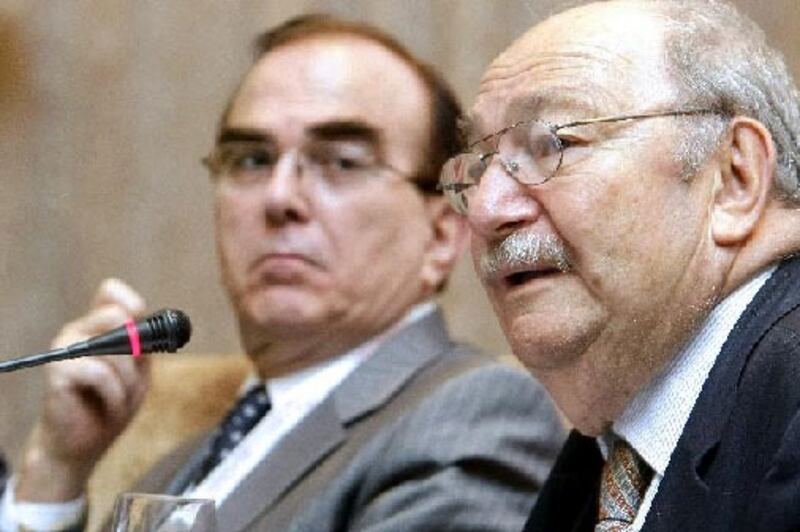Surging oil prices have become "divorced" from supply and demand and are now at least US$20 more than they should be, one of the world's top oil experts warned at the Dubai Economic Forum. With oil futures markets that set benchmark prices now serving a dual function as a site to hedge price risk and "a betting casino" for mainstream investors, the oil price had lost its link to market conditions, said Dr Robert Mabro, the former director of the Oxford Institute for Energy Studies and a prominent adviser to OPEC nations.
"The oil price has gone up from $60 to $80 in a short period, and there has been no change in fundamentals and no change in ideas about the future," Dr Mabro said. "That's the danger: we have an oil price that is divorced from fundamentals." Oil prices have breached the $80 barrier in recent weeks, despite the fact that global demand remains depressed and OPEC nations have put on idle millions of barrels of extra capacity that could flood the market with crude at short notice.
US crude traded below $79 a barrel yesterday. A number of experts, including OPEC officials, have warned that oil above $80 could threaten the recovery of the global economy. Energy experts are divided over the cause of this year's oil price rally of 76 per cent. Some economists argue prices are gaining over worries that global oil supply will be inadequate after the economy recovers from the recession.
Others, including Dr Mabro, say the price rise is fuelled by a herd mentality among Wall Street traders who are influenced more by equities, currencies and other financial markets than the supply and demand of crude. "The problem is that the futures market is only partially an oil market: it's a market for financial instruments which include oil, the price of which is influenced by what happens in the real market - but which is also influenced by what is happening on other markets," Dr Mabro said.
One example he cited is the negative relationship between the value of the dollar and oil prices that has been demonstrated in recent years. A common explanation for the correlation is that a fall in the dollar encourages oil producers to seek a higher nominal price in dollars to get the same real value for each barrel. Experts also say a drop in the value of the dollar tends to drive up all dollar-denominated commodities, since it makes them more attractive to investors holding other currencies.
But Dr Mabro said there should be no relationship between the two, as the oil producers who are directly affected by the dollar's decline have no role in setting the price, which is determined by the futures price in New York and London. He said the oil-dollar link was "incomprehensible", but suggested it had simply become a self-fulfilling prophecy among traders. The danger for oil producers is that unpredictable oil prices could cause them to make billions of dollars worth of unneeded investments in new drilling and production capacity, Mohammed al Hamli, the UAE Minister of Energy, told a conference in Moscow on Monday.
"Figures such as these cannot fail to ring alarm bells in the oil industry," Mr al Hamli said, according to a transcript of the speech posted on WAM, the state news agency. "From a global perspective, such uncertainty raises the risk of reducing necessary investments in the oil and gas industry." @Email:cstanton@thenational.ae





